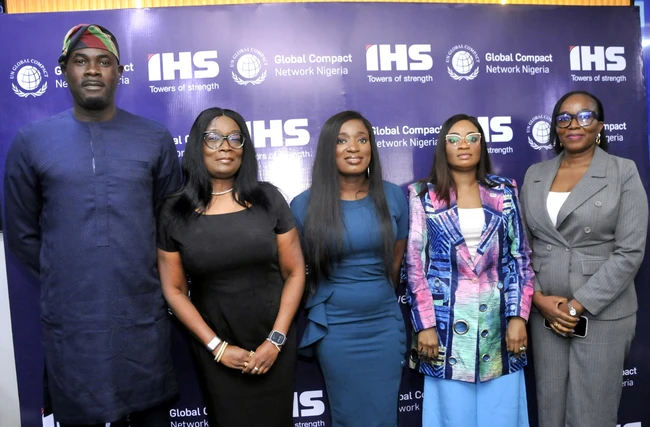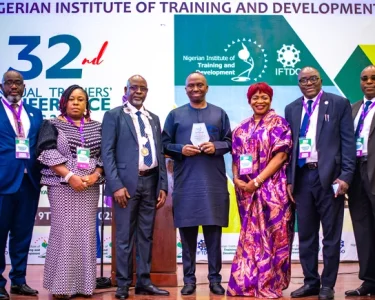The quest to integrate sustainability into business frameworks across different sectors, whilst dispelling myths, and highlighting opportunities for organisations top discourse at an IHS Nigeria event held in collaboration with the United Nations Global Compact Network Nigeria.
The which was a high-level private sector dialogue themed “Collaborative Strategies for Greener Business Practices, Innovation and Sustainable Development” brought together key players from different sectors including finance, law, telecommunications, biodiversity, and corporate sustainability to explore actionable pathways to achieve meaningful environmental stewardship in Nigeria.
In a panel session where speakers offered bold perspectives on theme, calls were for collective action from all players within the business value chain.
In her keynote address, Director, Sustainability at IHS Nigeria, Titilope Oguntuga, emphasised the urgency of environmental consciousness:
She said, “Sustainability is not a destination-it’s a collective journey. It requires courage to transform, vision to lead, and collaboration to scale. Nigeria stands at a crossroads. We can either be overwhelmed by the risks or rise to become a beacon of green innovation and inclusive growth in Africa. The choice is ours-and the time is now.”
Sharing her thoughts, Lead, Biodiversity and Nature-Based Solutions at the United Nations Global Compact, Sylvie Josel, who joined virtually from New York and spotlighted nature as a strategic asset said, “Nature must no longer be treated as an afterthought”.
She added: “It underpins everything, from human rights to supply chains. Embedding biodiversity into a company’s core strategy isn’t just a risk mitigation measure; it’s a smart, future-forward business imperative”
, Group Head, Climate Finance and Sustainability at the Bank of Industry (BOI), Lanre Babalola provided insights into how BOI is funding sustainable ventures and driving innovation:
“We look beyond profitability; we look at environmental and social impact. Whether it’s plastic roads, biogas, or solar transitions, we support businesses that are not only bankable but capable of reshaping the future.”
From the legal perspective, General Manager, Regulatory Affairs, MTN Group, Oyeronke Oyetunde, drew attention to the regulatory challenges hindering sustainability adoption:
“Our legal frameworks are trailing behind today’s sustainability realities. We need forward-thinking laws, reduced regulatory silos, and incentives that reward the right behavior. Sustainability can’t thrive where enforcement is weak, and taxation is excessive.”
Head, Corporate Sustainability and Responsibility at Wema Bank, Plc Abimbola Agbejule, spoke passionately about inclusiveness in sustainable development:
“You don’t need to start big to make impact. MSMEs make up a huge part of our economy. Sustainability should be embedded in their day-to-day activities, and we must democratize access to knowledge, tools, and partnerships.”
The session was moderated by Head of Programs at the United Nations Global Impact Center. Gloria Okorie.
The event closed with a resounding call to action for stronger legal frameworks, deeper collaborations, and inclusive capacity building across sectors. The event further reinforces IHS Nigeria’s position as a leader in corporate sustainability and innovation in Nigeria.
“At IHS Nigeria, we recognize that true progress happens when sustainability is not an obligation, but a culture, lived every day, across every unit,” Titilope Oguntuga added.
Through initiatives like this dialogue, IHS Nigeria and its partners continue to champion solutions that protect the planet, empower people, and ensure long-term business viability.




